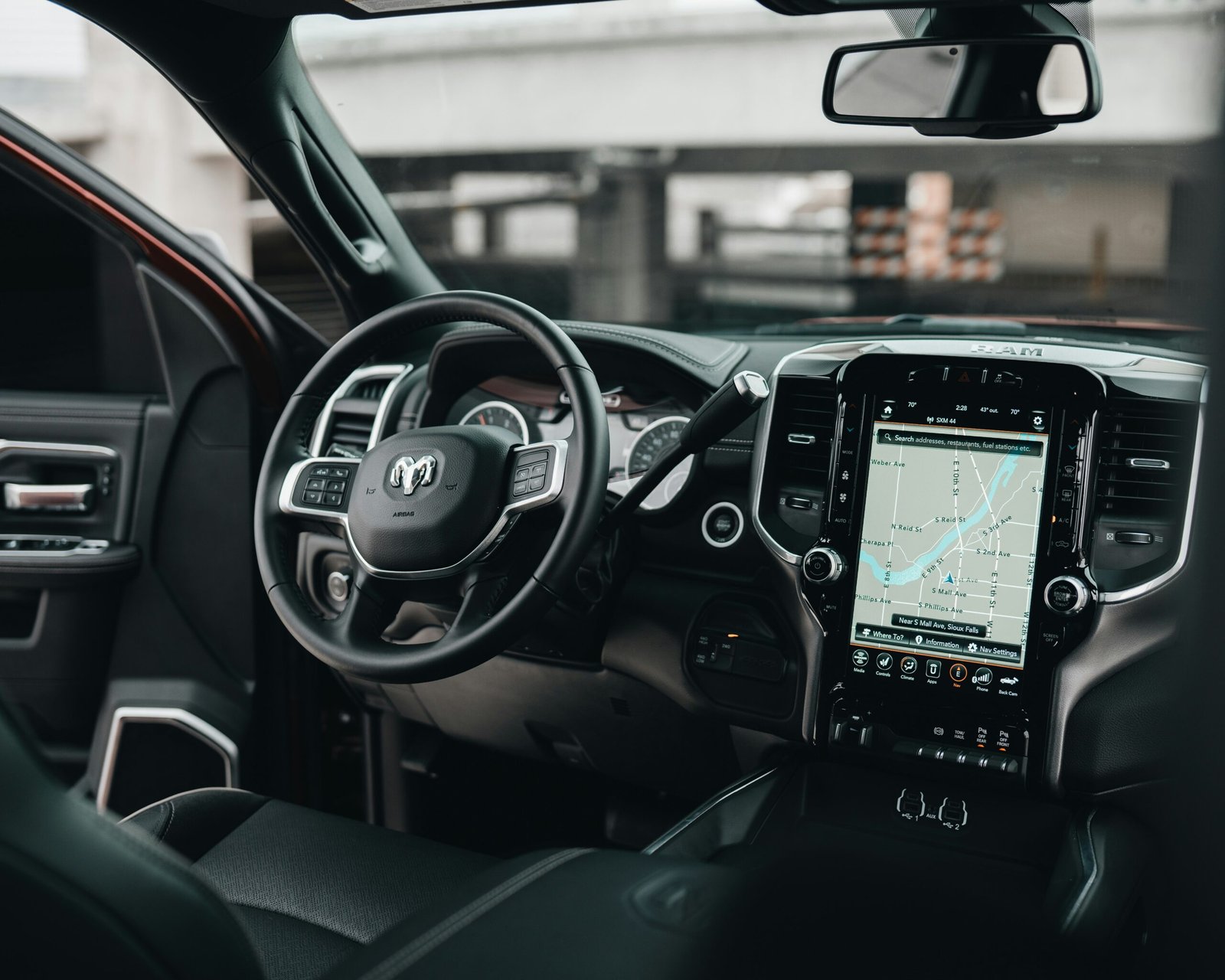Commercial vehicle insurance is an essential safeguard for businesses that rely on vehicles for their operations. Unlike personal auto insurance, which covers private vehicles used for typical commuting and personal errands, commercial vehicle insurance is explicitly tailored to meet the needs of businesses. Whether it’s a single delivery van or a fleet of trucks, this type of motor insurance is designed to protect against the unique risks associated with commercial transportation.
The primary purpose of commercial vehicle insurance is to provide financial protection in the event of accidents, theft, or other damages that may occur during business operations. It encompasses a variety of coverages, including liability for bodily injuries or property damage to others, collision and comprehensive coverage for the insured vehicle itself, and additional coverage options like uninsured motorist protection and cargo insurance. This robust protection is critical in mitigating the financial impact of unforeseen incidents on a business’s bottom line.
Businesses have distinct requirements when it comes to motor insurance due to the nature of their activities. For instance, vehicles used for transporting goods, providing services, or traveling extensively for business purposes face higher risks of wear and tear, accidents, and theft. Consequently, commercial vehicle policies are crafted to account for higher mileage, heavier loads, and the commercial use nature of the business vehicles, which are factors often excluded or limited in personal auto insurance policies.
Another critical difference is the liability aspect. Commercial vehicle insurance often includes higher liability limits to accommodate the greater exposure businesses face. The repercussions of a severe accident involving a business vehicle can be considerable, potentially leading to significant legal and financial consequences. Adequate commercial vehicle insurance ensures that businesses are well-protected, maintaining their operations smoothly despite any vehicular setbacks.
Coverage Options under Commercial Vehicle Insurance
Commercial vehicle insurance encompasses a range of coverage options designed to protect business assets and employees. One of the primary components is liability coverage, which is essential for safeguarding businesses against financial loss due to accidents where the company is found to be at fault. Liability coverage typically includes both bodily injury liability and property damage liability. For instance, if an employee driving a company vehicle causes an accident that injures another driver or damages their property, this coverage helps pay for medical expenses and repair costs, thus shielding the business from substantial financial liabilities.
Physical damage coverage is another crucial element, providing protection against damages to the company’s vehicles. This category includes comprehensive and collision coverage. Comprehensive coverage protects against non-collision-related incidents, such as theft, vandalism, and natural disasters. For example, if a company van is stolen or a heavy storm damages a fleet of delivery trucks, comprehensive coverage would kick in. On the other hand, collision coverage pays for damages caused by collisions with other vehicles or objects, an invaluable feature if an employee happens to rear-end another car.
Medical payments coverage—often referred to as MedPay—offers financial assistance for medical expenses incurred by the driver and passengers in the event of an accident, regardless of who is at fault. This ensures that employees receive necessary medical attention promptly, minimizing potential downtime and enhancing overall business productivity.
Uninsured/underinsured motorist coverage is another vital protection offered under motor insurance policies for commercial vehicles. This coverage comes into play when an accident occurs with a driver who either does not have insurance or whose coverage is insufficient to cover the total damages. For instance, if a delivery truck is struck by an uninsured driver, uninsured motorist coverage ensures the business is not left facing hefty out-of-pocket repair and medical costs.
Understanding and selecting the right mix of coverage options is paramount in protecting both business assets and the well-being of employees, thereby ensuring smooth operational continuity even in the face of unforeseen accidents or damages.
Extendable Areas and Additional Coverage Options
Commercial vehicle insurance policies offer a variety of extendable areas and additional coverage options to ensure businesses can tailor their protection to meet specific needs. One of the key options is the inclusion of optional endorsements and riders. These additions can significantly enhance a standard motor insurance policy by adding layers of protection that are often crucial in the commercial sphere.
One notable extension is the coverage for hired or non-owned vehicles. This type of endorsement is particularly valuable for businesses that frequently rent vehicles or have employees using personal cars for business purposes. This additional coverage ensures that liabilities are handled by the company’s insurance policy rather than the personal insurance of the vehicle’s owner, thereby mitigating potential personal exposure and ensuring comprehensive protection.
Another useful extension is cargo insurance, which is indispensable for businesses involved in the transport of goods. This rider protects against losses or damages to cargo during transit, offering peace of mind to companies that their transported goods are financially protected. This is especially relevant for logistics, shipping, and courier businesses where cargo value can be substantial.
Additionally, roadside assistance is an option that can be added to a commercial vehicle insurance policy. This provides services such as towing, tire changes, and other roadside services, reducing downtime and helping businesses maintain productivity even in the event of minor vehicular issues.
Industry-specific endorsements are also available. For construction companies, coverage can include specialized equipment or machinery, ensuring these high-value assets are safeguarded. Delivery services might benefit from increased liability limits or coverage for refrigerated items, while rideshare providers can add endorsements that cater specifically to their unique commercial vehicle requirements.
These additional coverages can prevent substantial financial losses and ensure smooth business operations. For example, cargo insurance can save a trucking company from absorbing the cost of damaged goods, and roadside assistance can prevent costly delays caused by vehicle breakdowns. By customizing a policy with appropriate endorsements, businesses can better manage risk and safeguard their financial health.
Special Conditions and Considerations
When acquiring commercial vehicle insurance, businesses must be mindful of several special conditions and considerations to ensure they secure holistic protection for their fleet and operations. One crucial aspect is understanding policy limits and deductibles. Policy limits cap the amount an insurer will pay for a covered loss, while deductibles are the amounts the policyholder must pay out-of-pocket before the insurance coverage kicks in. Balancing these two elements is key to achieving cost-effective protection without compromising on coverage adequacy.
Notably, exclusions are vital stipulations within motor insurance contracts that delineate circumstances in which coverage may not be provided. Common exclusions may encompass intentional damage, unauthorized use of vehicles, or damages occurring outside the specified geographic area. Being cognizant of these exclusions helps avoid unforeseen gaps in coverage and potential financial liabilities.
The claims process is another critical consideration. Understanding how to efficiently file claims, what documentation is required, and the typical timeline for processing can significantly impact a business’s ability to recover from losses promptly. It’s advisable for companies to establish robust internal protocols for managing incidents and maintaining comprehensive records, which will facilitate smoother interactions with insurers during claims.
Periodically reviewing and updating policies is another fundamental practice for maintaining adequate coverage. Businesses often evolve, and so do their insurance needs. Regular assessments, aligned with changes in operations, vehicle counts, or usage patterns, ensure that the current policy remains attuned to the actual risk landscape.
Moreover, understanding the insurer’s rating process helps businesses make informed decisions. Insurers evaluate various factors, such as the nature of the business, the types of vehicles insured, and the company’s claims history, to determine premiums. Greater transparency about these factors enables businesses to adopt risk mitigation measures that positively influence their insurance costs.
Collaborating with insurance brokers or agents is also highly recommended. These professionals bring expertise that can help tailor commercial vehicle insurance policies to uniquely match the business’s needs. They can negotiate terms, clarify doubts, and provide strategic insights to optimize coverage.
A real-world example of these considerations in action can be seen with a logistics company that realized the importance of regular policy reviews when their fleet expanded significantly over the years. By working closely with their insurance broker, they updated their policy to include additional vehicles and incorporated broader coverage to encompass new operational territories, thereby securing comprehensive protection for their growing business.








